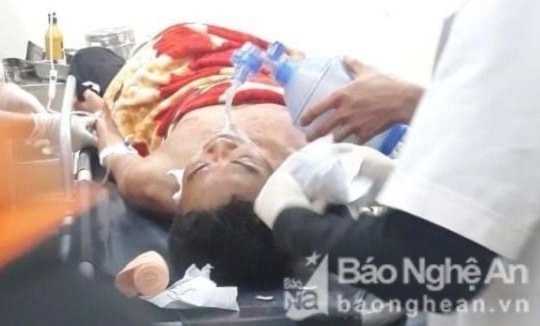Limiting the emergence of hot spots thanks to mediation work
(Baonghean.vn) - Over the past 10 years, all levels, sectors and localities in Nghe An province have paid attention to effectively implementing the Law on Grassroots Mediation. Thereby, it has contributed to resolving and healing many disputes and conflicts among the people, consolidating the great solidarity bloc, and ensuring security and order at the grassroots level.
Timely resolution of conflicts and disputes
In Pha Bun village, Huoi Tu commune (Ky Son), Mr. Ho Tong Lau has been the village chief for 25 years. For the same number of years, he and the village's mediation team have successfully resolved many conflicts in the village. Village chief Ho Tong Lau said: "Many times, just because of very small matters, but because the villagers do not know how to distinguish right from wrong, it leads to arguments, conflicts and then lawsuits, causing loss of solidarity... To resolve conflicts, the cadres and the village's mediation team always listen, learn about the reality, analyze the reason and the emotion so that both sides are satisfied."
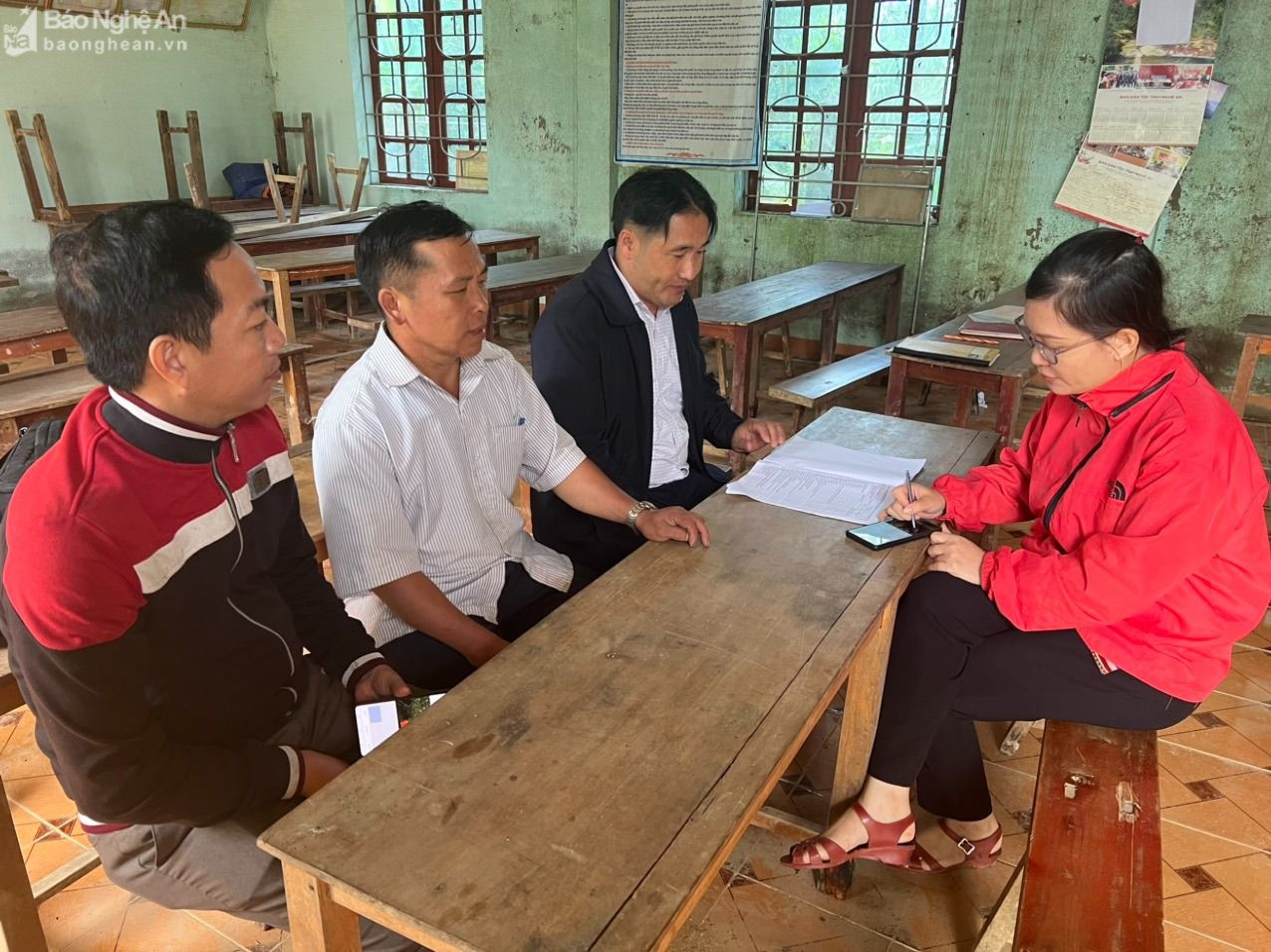
For example, in 2023, due to a conflict during a party and drinking, Mr. Ly Va D. and Mr. Lau Cho V. got into a fight and then sued each other. The village chief Ho Tong Lau and the village's mediation team invited prestigious village elders and related parties to the community cultural house for mediation. The two sides then agreed to live in harmony and maintain solidarity in the village...
According to the leader of the People's Committee of Huoi Tu commune, promoting the role of the mediation team is a prerequisite to help resolve conflicts, disputes or disagreements in relationships in the community, limiting petitions and complaints beyond the level. In fact, in the past few years, conflicts in the village have been promptly resolved by the grassroots mediation teams, thus strengthening and connecting the feelings in the community.
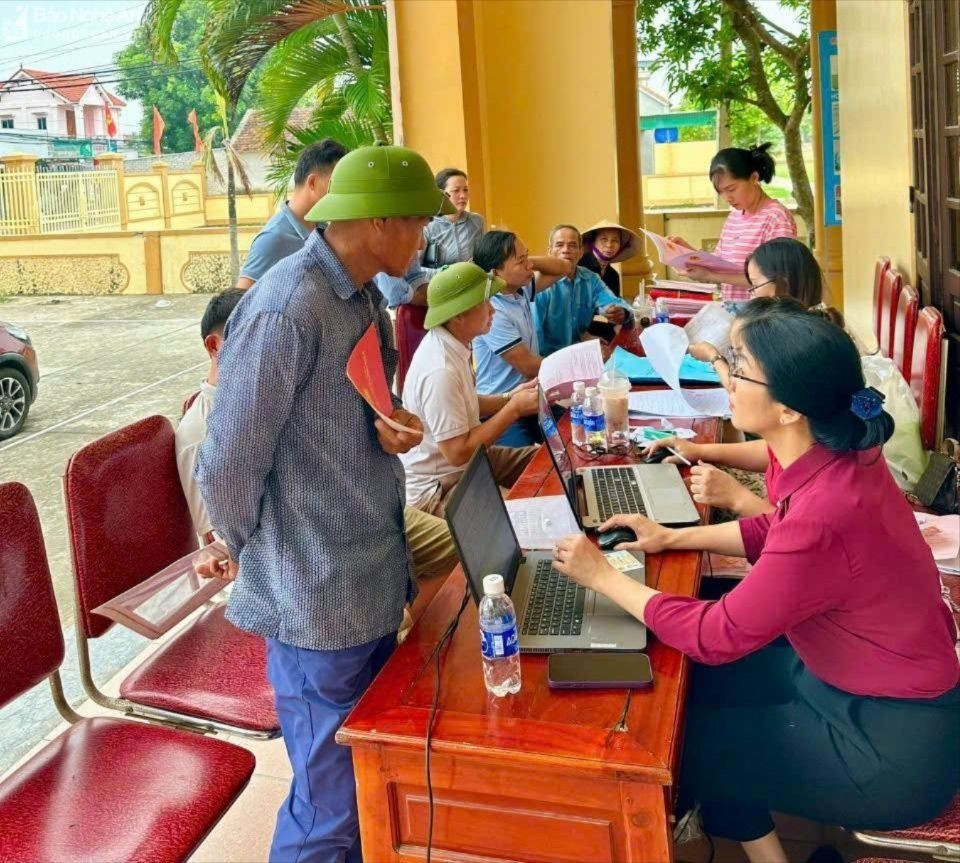
In many localities, mediation work is increasingly receiving attention, thereby contributing to limiting the emergence of hot spots, preventing and minimizing law violations, and ensuring security and order in the area.
As in Dien Chau district, the Party Committee and the government have directed the implementation of many synchronous solutions to improve the quality and effectiveness of mediation work at the grassroots level. Thanks to that, the rate of successful mediation has increased. Over the past 10 years, the whole district has received 1,324 mediation cases, with a successful mediation rate of 81.34%.
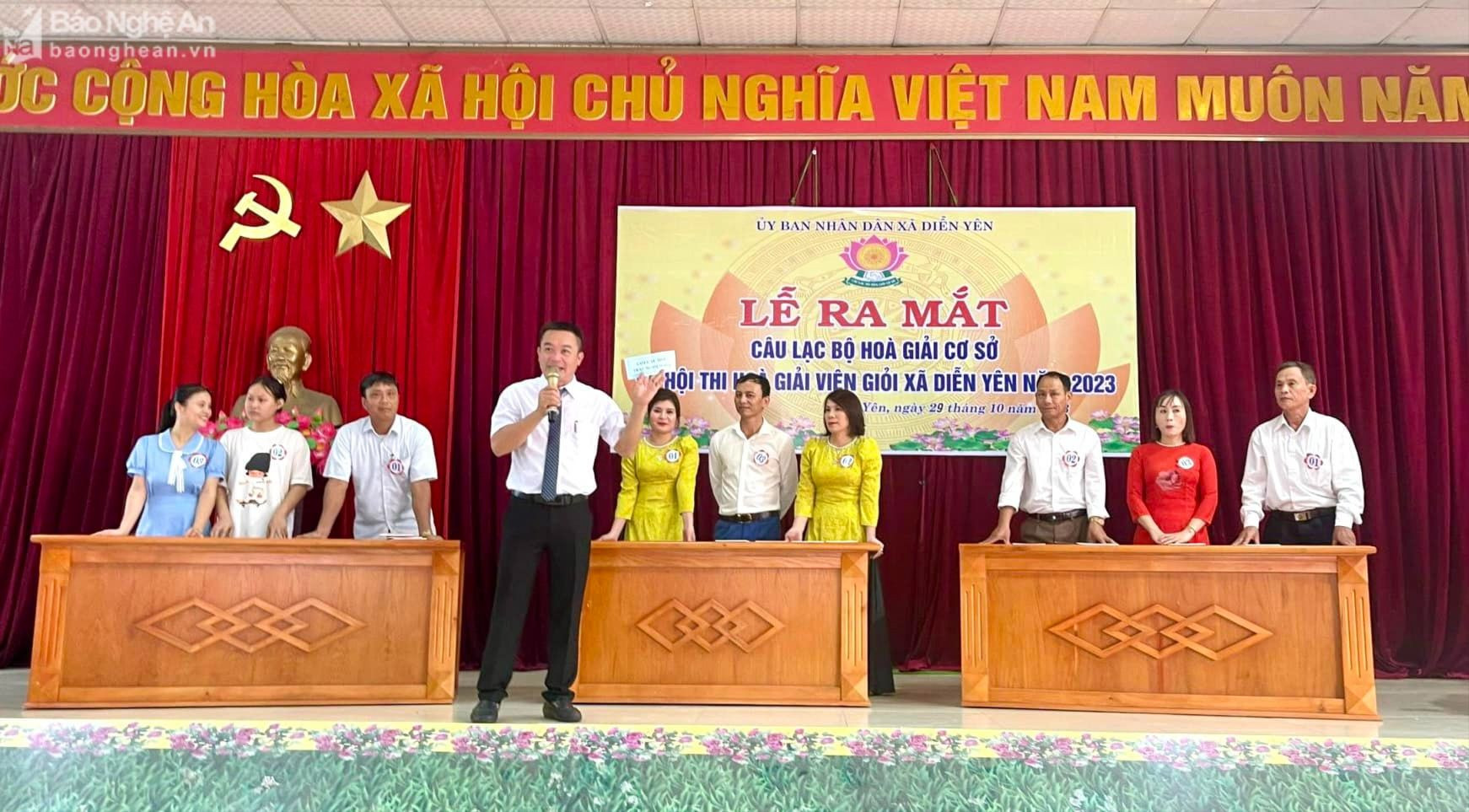
According to Ms. Hoang Thi Xuyen - Head of the Justice Department of Dien Chau district: Along with training and improving the expertise and professionalism of the team of mediators, in 2023, the Justice Department advised the People's Committee of Dien Chau district to issue a Plan to build and replicate the model of "Mediation at the grassroots" Club in the area. Up to now, 37/37 communes and towns have launched the club; becoming a forum for mediators to exchange, share experiences, guide and support each other to resolve cases more effectively.
In addition, to do a good job of conciliating disputes (especially land disputes) right at the grassroots level, reducing the number of cases that have to be transferred to higher-level agencies and brought to court, the Department of Justice has advised the District People's Committee to organize the signing of the Regulations on coordination of work between the District People's Court and the People's Committees of communes and towns in the area. Accordingly, taking advantage of the support of the District People's Court in carrying out conciliation work in villages, blocks, and hamlets; conciliating land disputes under the authority of the Commune People's Committee.
Similarly, in the mountainous district of Quy Hop, since 2022, the coordination regulations between the district People's Court and the People's Committees of communes and towns and the coordination regulations between the district People's Committee and the People's Court and the district People's Procuracy in handling and resolving disputes have been signed. Based on these two regulations, the district has issued Decision 827 to establish a special working group to carry out the tasks.
Mr. Vy Hoang Ha - Head of the Justice Department of Quy Hop district said: Currently, the district has 214 grassroots mediation teams, with 1,546 mediators. When the special working group comes to work in the locality, they will invite grassroots mediators to participate to both contribute to resolving the case and create conditions for mediators to learn and improve their professional skills and mediation skills. Thanks to that, the annual successful mediation rate reaches 70%.
LookIn general, over the past 10 years, the implementation of the Law on Mediation at the grassroots level in Nghe An province has always received attention and direction from Party committees and authorities at all levels, thereby positively impacting social life, creating a complete, comprehensive and solid legal basis for mediation activities at the grassroots level to become systematic, unified and effective, contributing positively to ensuring security, order and social safety in the locality.
Currently, the whole province has 3,870 mediation teams, with 26,402 mediators; 55 grassroots mediation clubs, model mediation teams, community mediation teams... The annual successful mediation rate reaches 70-85% or more.
Removing difficulties and obstacles
Although there have been many changes, the implementation of the Law on Grassroots Mediation in the province still has some shortcomings and limitations: The team of mediators holds many positions concurrently, so the time spent on mediation work is not much.
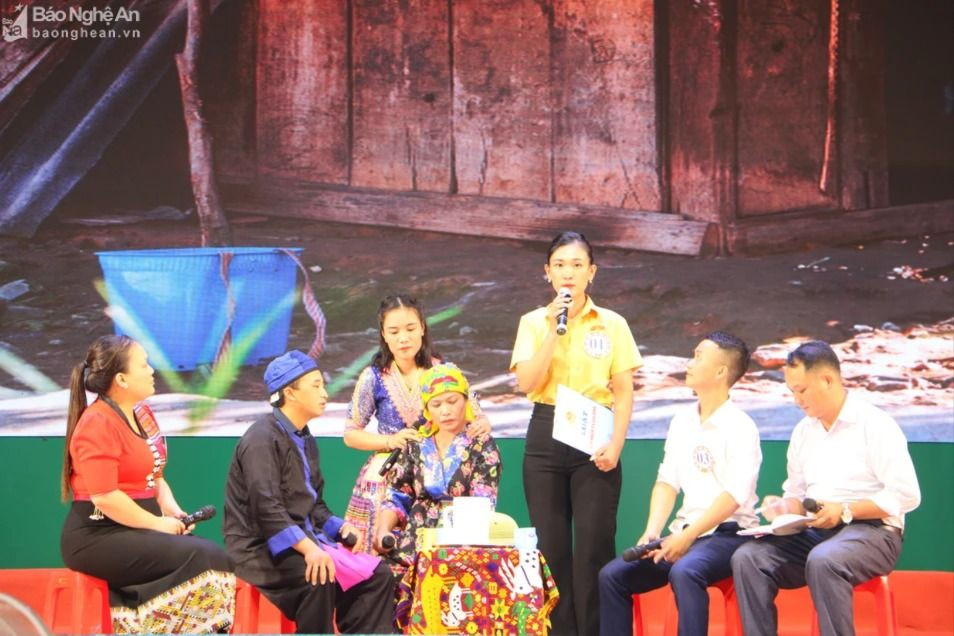
The education level, legal knowledge, skills and mediation expertise of some mediators are still low, and they have not attracted people with legal expertise to participate (for example, in Dien Chau district, out of 1,400 mediators, only 51 have legal expertise, accounting for 3.6%), so the quality of mediation is not high. Disputes are increasingly diverse and complicated, especially land disputes, while the level of mediators is still limited, so mediation activities face many difficulties.
For example, in Quy Hop district, the leader of the district's Justice Department said: The biggest and most common problem in grassroots mediation is forest land disputes. In reality, there is currently a gap between the boundaries of land plots in the field, the actual production of people and the documents and records. The reason is that the preparation of the 163 land allocation records was previously done by the Department of Natural Resources and Environment hiring consulting companies. The process of consulting to measure the land is not true to reality or measured in the forest, on the mountain, so the boundaries and boundaries of the land plots are not accurate.
Therefore, it is recommended that the Provincial People's Committee and competent authorities have a project to review, measure and issue and renew Forest Land Use Right Certificates for people to ensure they are in accordance with the actual production area, limiting conflicts and disputes over forest land.
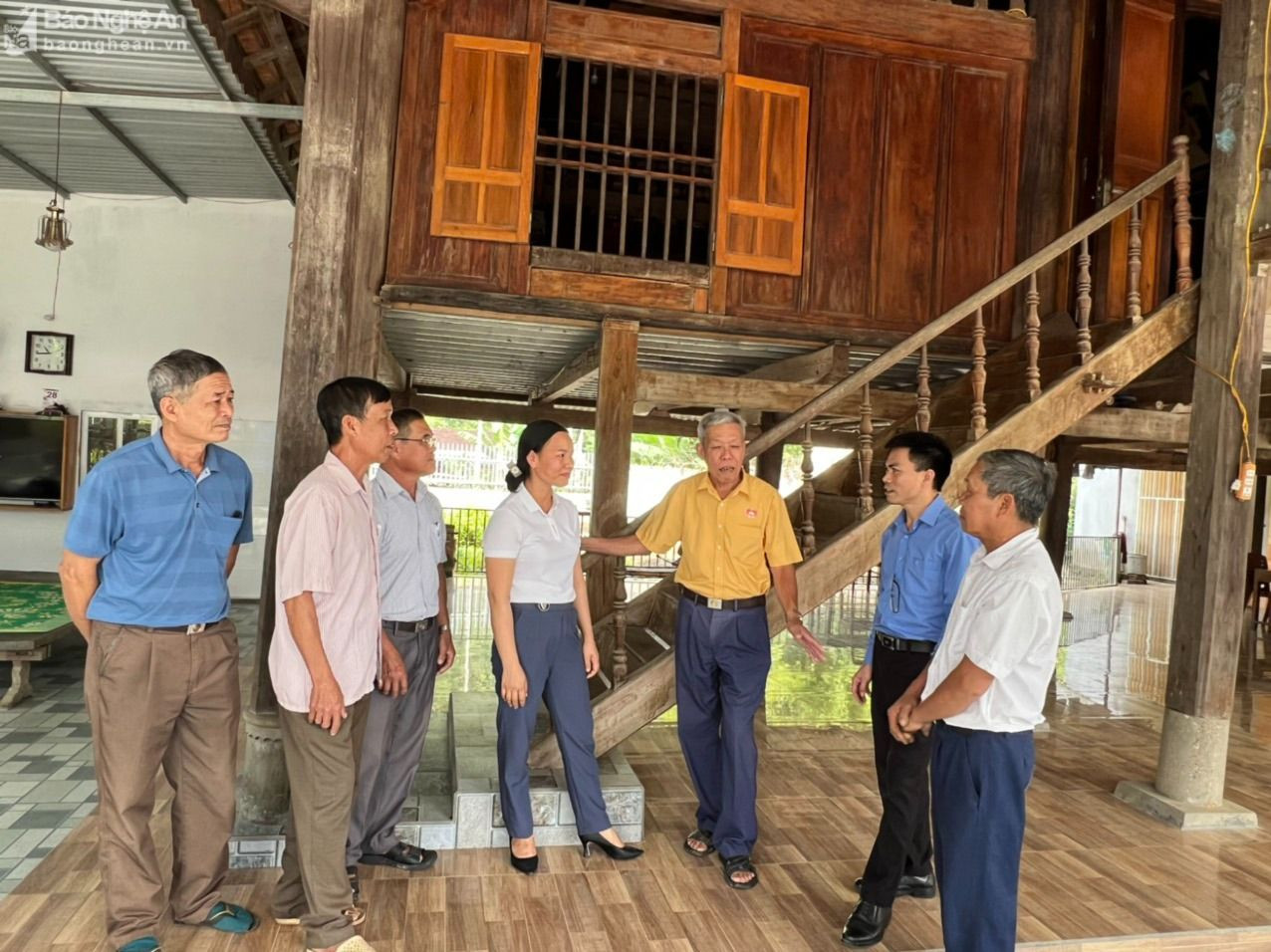
Regarding State management, local Party committees and authorities in some places have not really paid due attention to the importance of mediation work. Most localities are still confused in determining the funding source for mediation work in the budget estimate from the beginning of the year and the mobilization of social resources for mediation work at the grassroots level has not been implemented. Some specialized cadres of communes, wards and towns have not done a good job of advising the People's Committees of the same level in grassroots mediation work, and still have the mindset of waiting and relying on the direction of superiors...
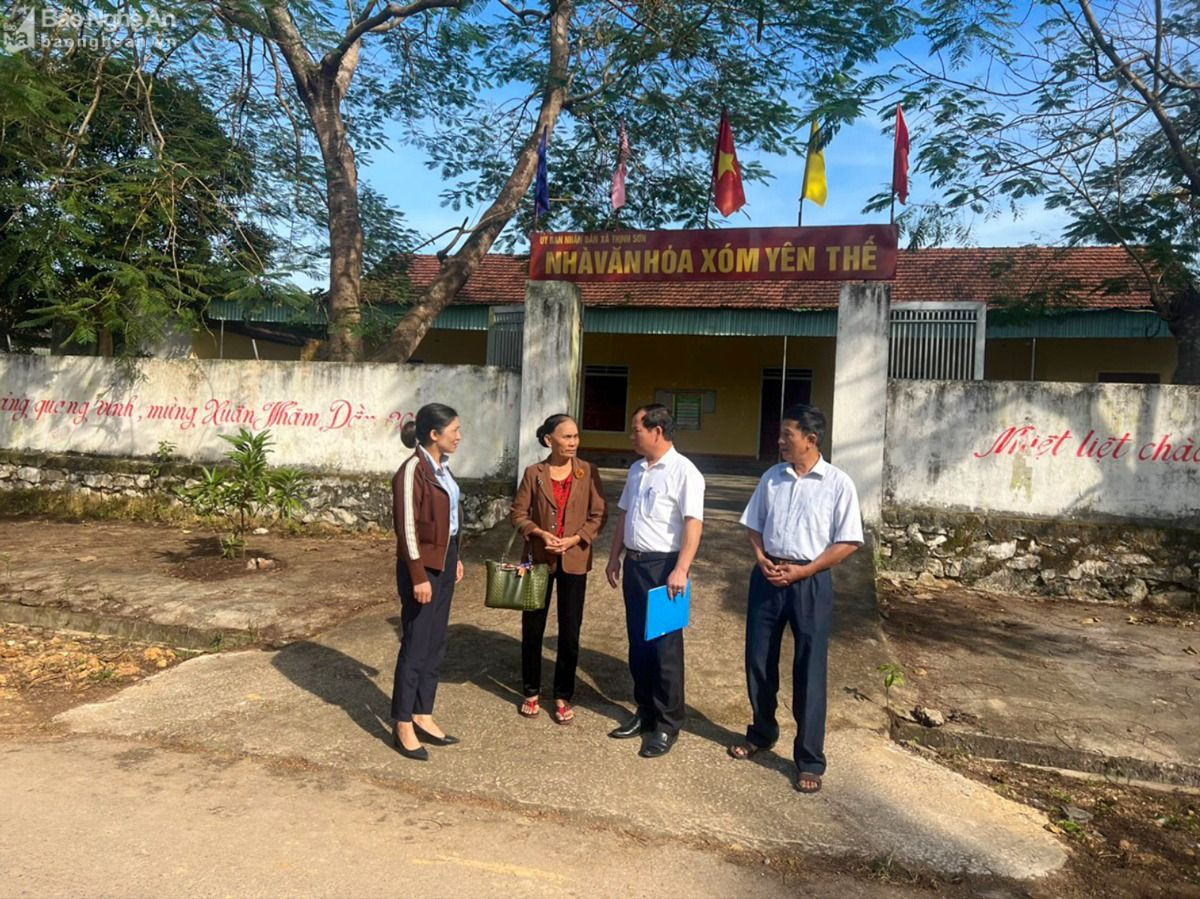
In order for grassroots mediation work to go into depth and meet practical requirements, according to Ms. Hoang Thi Thu Trang - Director of Nghe An Department of Justice, it is necessary to improve the quality of activities and advisory work of judicial officers of wards, communes and towns. Regularly consolidate and improve the team of mediators, train and foster legal knowledge and mediation skills for mediators. Continue to encourage and promote the role of the masses in mediation work because the nature of the mediation team is a self-governing team of the people. In addition, mobilize a team of jurists, lawyers, judges, people's jurors, retired officials... to participate in supporting mediators in mediation activities at the grassroots to improve the quality of mediation.
On the other hand, Party committees, authorities, departments, branches and organizations at all levels need to determine that grassroots mediation work is the task of the entire political system and the whole society, not just the task of the judiciary, judicial officials, or mediation teams or mediators.
Based on the reality of 10 years of implementing the Law on Grassroots Mediation, Nghe An province also proposed that the Government amend the regulations on the order and procedures for electing mediators in Joint Resolution No. 01/2014 in a simpler direction, avoiding the administrativeization of the election and recognition process of mediators, creating favorable conditions for the process of organizing the election of mediators to ensure objectivity and correctly reflect the aspirations of the people...

